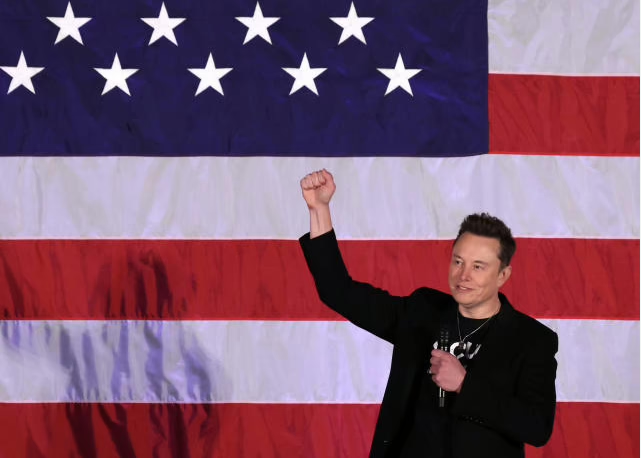In the words of pop icon Taylor Swift, “it’s been a long time coming.”
On Thursday, 7 November 2024, Australian Prime Minister Anthony Albanese announced a “world-first” move—a sweeping social media ban for all children under 16. Just one day later, leaders from all seven states and territories came together in a national cabinet meeting to sign off on what’s being hailed as a world-leading measure.
For Australia’s youth, this news might not come as a huge shock. After all, smartphones have already been banned in public schools since October last year. But this new proposal goes much further, extending beyond school grounds and into all aspects of young people’s lives. Some are even calling it a violation of their rights.
A double edged sword
As reported by Reuters, Albanese stated, “Social media is doing harm to our kids, and I’m calling time on it.”
He discussed the physical and mental health risks linked to excessive social media use, particularly harmful body image portrayals for young girls and misogynistic content aimed at boys.
Albanese went on to say, “If you’re a 14-year-old kid receiving this stuff during a time when you’re going through life’s changes and maturing, it can be a really difficult time.”
While the intention behind the legislation is commendable, a ban may not be the most effective solution to address the negative mental health impacts of social media on young users. There are always workarounds, and we could see tweens and teens bypassing restrictions by using VPNs, essentially pushing social media use underground.
Moreover, cutting young people off from social media could limit their access to vital resources and information. With mental health issues at an all-time high, restricting social media won’t undo the effects of these challenges.
Many young people today rely on the relationships they build within online communities, whether through blogging, gaming, or other platforms. Removing this avenue suddenly takes away an accessible means of education, connection, and support.
While millennial’s grew up without social media, things are different now. For many of them, social media simply wasn’t an option. But for today’s youth, platforms like TikTok, Instagram, and YouTube are integral to how they express themselves, connect with peers, and navigate the world. Taking these away feels like ripping out a core part of their identity.
Millennials may have had more time to develop their sense of self offline, but for Gen Z, the digital space is where their social lives and sense of belonging thrive.
No TikTok until you’re 16…no X, Instagram, and Facebook too
Minister for Communications Michelle Rowland has outlined that Facebook, Instagram, YouTube, and TikTok will be the primary platforms banned under the new legislation, with the possibility of additional platforms being included.
Existing users may face a chaotic process, with tech companies needing to review and verify accounts. New users will be required to undergo strict age verification, potentially involving documentation or biometric testing, making it harder to bypass age restrictions by simply lying about one’s age.
Some critics argue that restricting access to platforms like LinkedIn may harm young adults, as many rely on it for news and professional networking. Removing this access could limit their ability to stay informed and connect with potential career opportunities, especially in a time when social media is a primary source of information for many.
Has this worked anywhere else?
While many countries plan to introduce social media restrictions or bans, Australia’s policy is by far the strictest. Currently, various legislative approaches globally address online safety for children. In the United States, COPPA requires parental consent for websites to collect data on children under 13, leading many platforms to restrict their access entirely, though this often results in age falsification.
In Europe, an initial EU proposal to require parental consent for under-16s online faced resistance, leading to modified guidelines under the GDPR, focused on user data protection. France’s 2023 law mandates social networks to verify parental consent for under-15s, but critics note children often navigate to smaller, unregulated sites.
The UK, formerly aligned with the EU’s 13-year rule, now debates raising the age limit to 16. Yet, a recent 18-year study spanning 168 countries suggests no direct link between youth internet use and well-being, questioning the effectiveness of such restrictions.
A harsh removal of rights?
The UN’s General Comment No. 25 (2021) on children’s rights in the digital environment expands the 1989 UN Convention on the Rights of the Child to cover the online world, affirming that children have the right to participate digitally in a safe and accessible way. These rights include:
- The right to access and share information (Article 13)
- The right to connect and interact with peers (Article 15)
- The right to privacy, even from family (Article 16)
- The right to access reliable information from the media (Article 17)
Australia’s proposed social media ban appears to directly challenge these principles, potentially straining its alliance with the United States within NATO.
Earlier this year, Vice President-elect JD Vance warned NATO allies against excessive social media regulation on Elon Musk’s platform, X, calling on them to “respect free speech.” It will be interesting to see how Albanese’s forthcoming ban might influence Australia’s relationship with the U.S.

Foreseeable challenges for marketers
The social media ban may challenge marketers targeting young adults, yet it could prompt a strategic shift, encouraging them to explore family-focused content. Marketers might pivot to campaigns that appeal to both parents and young adults, inviting parents or guardians to engage more directly in digital experiences with younger audiences.
By embracing channels that foster family-oriented messaging, marketers can create new ways for parents and guardians to actively participate, bridging connections with young consumers while abiding by the new restrictions.
We’re definitely bound to see an increased emphasis on parent-child relationships as marketers will doubling down on targeting parents to invest in youth essentials such as clothing, food, and family-centric experiences.
Additionally, the ban will have a significant impact on influencer marketing in which all forms of paid, organic, and influencer marketing will basically cease to exist overnight. Without social media today, brand awareness for niche or up and coming brands will basically be nonexistent. Does this mean word of mouth marketing will make a comeback or will these brands fade into oblivion? Only time will tell.
The same goes for SEO strategies. Keyword trends will shift due to shifting search behaviours. Marketers will definitely need to redirect SEO efforts to target searches made by parents and guardians.
Ultimately, the social media ban feels like a band-aid fix. While it might pressure tech and marketing companies to come up with solutions that are young-user friendly, however as mentioned earlier, unless the rest of the world partakes in it too, users can bypass the ban easily.
